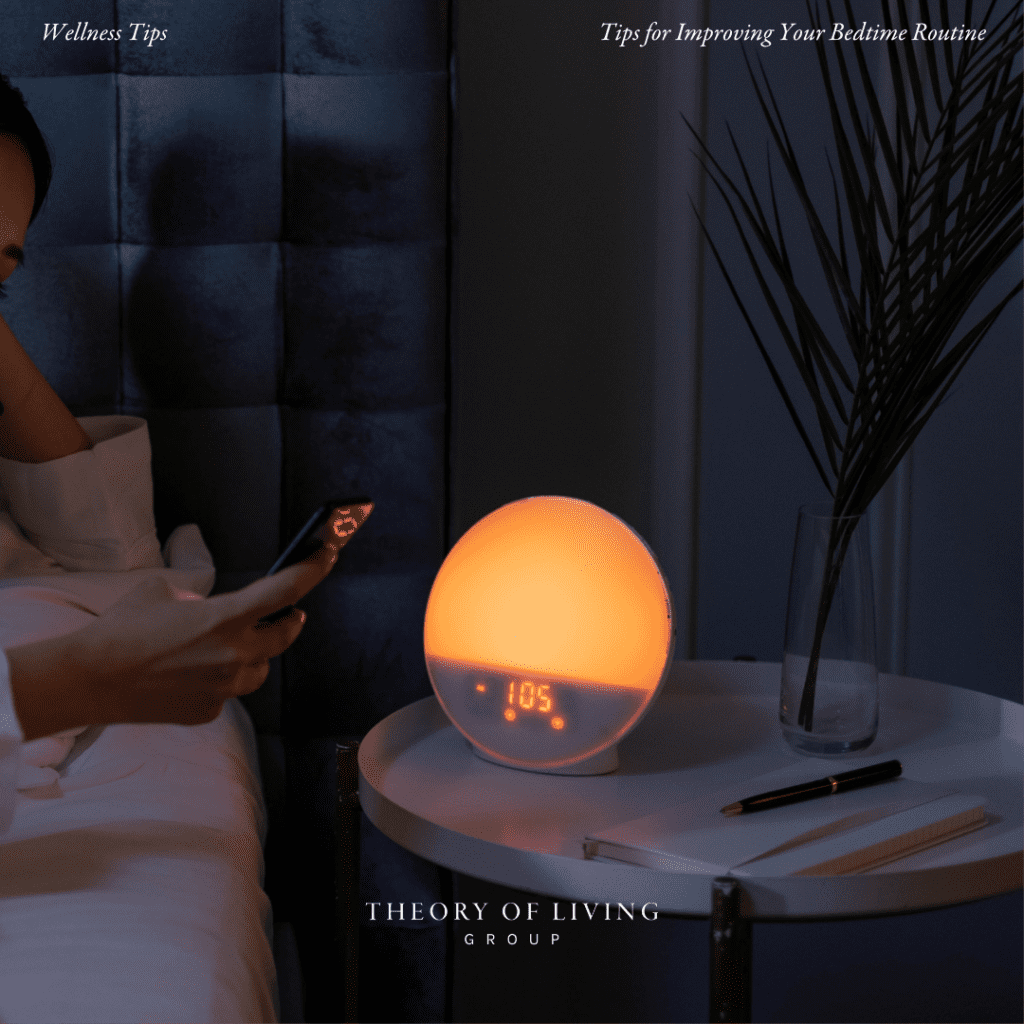Negative Effect of Not Getting Enogh Sleep
- Insufficient sleep raises the likelihood of obesity and diabetes.
- Sleeping less than 6 hours daily increases cancer risk by over 40%.
- Less than 6 hours of sleep a day raises the risk of stroke by over 30%.
- Reduces cognitive function and raises susceptibility to viruses like the flu.
- Impacts mental well-being and raises the risk of depression.
Let’s create a more effective bedtime routine for your daily life. Swipe left for some simple tips:
Decide on a Set Bedtime

Set a regular bedtime and wake-up schedule, even on weekends, to enhance the transition from being awake to falling asleep and train your brain to naturally feel tired at bedtime.
Avoid Using Electronics Devices before Bedtime

To improve sleep, reduce electronic device usage before bedtime as the blue light emitted can suppress melatonin production, keeping you awake.
Take a Warm Bath

Having a warm bath before bedtime can create a decrease in body temperature, leading to a calm and drowsy state.
Listen to Music
Regardless of its genre, music can serve as a potent relaxation tool by calming you and redirecting your focus from worries and anxiety, ultimately promoting relaxation.

Breathe, Relax and Meditation
Practicing relaxation techniques like deep breathing, progressive muscle relaxation, yoga, stretches, massage, and mindfulness meditation can help release tension, improve sleep, prevent cramping, and enhance overall well-being.
Enjoy Reading a Good Book
Reading before bed, starting in childhood, can aid sleep. For adults, choose calming books outside the bedroom with soft light. Avoid stimulating genres. When tired, head to bed for better sleep.

Write Down a To-do List or a Journal
Consider starting with a simple to-do list for journaling in the evening to sort thoughts and feelings before bed.
Prepare Your Bedroom


Arrange your bedroom to create a relaxing and sleep-conducive environment.







 No products in the cart.
No products in the cart.